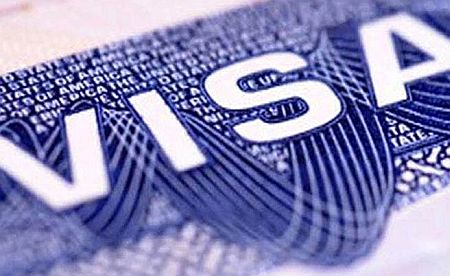Proposed UK Restrictions On Student Visas From Asylum-Prone Nations

Table of Contents
The Rationale Behind Proposed Restrictions
The government justifies these proposed UK student visa restrictions primarily through the lens of immigration control and national security. The core argument centers on preventing the abuse of the student visa system for purposes other than genuine study. This includes concerns about:
- Preventing visa fraud: The government aims to deter individuals from using student visas as a pathway to circumvent immigration laws and remain in the UK indefinitely.
- Addressing potential security risks: Stricter vetting procedures are intended to mitigate potential security threats associated with individuals entering the country under the guise of students.
- Reducing unfounded asylum claims: The government believes tighter visa regulations may discourage individuals from making spurious asylum claims after arriving in the UK on student visas.
- Ensuring genuine student applications: The proposed changes aim to filter out applicants who lack genuine intent to pursue their studies, focusing instead on individuals committed to academic pursuits.
This tightening of regulations may involve:
- Increased scrutiny of applications: Applications from specific countries identified as "asylum-prone" will face heightened scrutiny.
- Higher financial thresholds: Applicants may need to demonstrate significantly higher financial resources to support their studies.
- Tougher English language requirements: More stringent English language proficiency tests could be implemented.
- More stringent proof of genuine student intent: Applicants may need to provide more substantial evidence of their academic goals and intentions.
Impact on International Students and Higher Education
The proposed restrictions, however, carry potentially severe consequences for international students and the UK's higher education system. The ramifications could include:
- Reduced international student enrollment: Stricter visa requirements could deter prospective students from applying to UK universities, leading to a decline in international student numbers.
- Loss of international tuition fees and research funding: A drop in international student enrollment would directly translate to a loss of significant tuition fees and research funding for UK universities.
- Damage to the UK's reputation: These restrictive measures could damage the UK's reputation as a welcoming and inclusive destination for international students, impacting its global standing in higher education.
- Reduced diversity in UK universities: Fewer international students would inevitably lead to a less diverse student body, diminishing the richness of cultural exchange on campuses.
- Brain drain effect: Talented students from asylum-prone nations might choose to pursue their education in other countries, depriving the UK of future skilled workers and innovators.
These potential negative impacts manifest in:
- Significant financial losses for universities: Reduced income from tuition fees could impact university budgets and research capabilities.
- Diminished cultural exchange: A less diverse student body would limit opportunities for cross-cultural learning and understanding.
- Negative impact on research collaborations: Fewer international students may result in fewer opportunities for international research collaborations.
- Loss of highly skilled graduates: The UK could lose potential skilled workers and innovators who may contribute significantly to the UK economy.
Legal and Ethical Considerations
The proposed restrictions raise serious legal and ethical concerns. These include:
- Potential discrimination: Targeting specific nationalities based on their country of origin risks violating principles of non-discrimination and equal treatment under the law.
- Violation of human rights: The restrictions could infringe on the human rights of asylum seekers and refugees, violating international human rights conventions.
- Concerns about due process: The increased scrutiny and stricter requirements may lead to unfair and inefficient visa application processes, denying individuals due process.
- Compliance with international law: The measures must be carefully designed to ensure compliance with international law regarding refugees and asylum seekers.
Specific concerns include:
- Potential legal challenges: The new regulations may face legal challenges from human rights organizations and affected individuals.
- Ethical implications: Targeting specific countries raises serious ethical concerns about fairness and equality.
- Need for transparent processes: The visa application process must remain transparent and fair to all applicants.
- Role of international organizations: International human rights organizations will play a crucial role in monitoring the implementation of the new regulations and ensuring compliance with international law.
Alternative Solutions and Policy Recommendations
Instead of implementing broad restrictions, the UK government should explore alternative strategies to address concerns about immigration while preserving the benefits of international student mobility. These include:
- Improved visa processing: Investing in more efficient and accurate visa processing systems can reduce delays and improve applicant experiences.
- Risk assessment tools: Utilizing advanced risk assessment tools can help identify potentially fraudulent applications more effectively.
- Collaboration with universities: Enhanced collaboration between the government and universities can facilitate the identification of genuine students.
- Enhanced security measures: Strengthening security measures to combat fraud and abuse can improve the integrity of the student visa system.
- Streamlined application procedures: Simplifying and streamlining the application process can make it easier for genuine students to obtain visas.
These alternatives could involve:
- Improved accuracy and speed: Faster processing times and improved accuracy in assessing applications.
- Technology-driven fraud detection: Utilizing advanced technology to identify fraudulent applications more efficiently.
- Strengthened partnerships: Building stronger partnerships between universities and immigration authorities.
- Effective strategies for identifying asylum seekers: Implementing clearer and more efficient procedures to identify genuine asylum seekers.
Conclusion
The proposed UK student visa restrictions for asylum-prone nations present a complex dilemma. While addressing legitimate concerns about immigration control and national security is crucial, the potential negative consequences for international students, UK universities, and the UK's global standing must be carefully considered. A balanced approach is vital – one that effectively manages immigration risks while upholding the UK's commitment to international education and human rights. We need policies that are both robust and fair.
Call to Action: Engage in informed discussion about these proposed changes. Contact your elected representatives and advocate for policies that are both effective and just concerning UK student visas. Support organizations working on immigration and human rights issues to ensure a fair and equitable system for all international students. Learn more about UK student visa regulations and their impact through further reading and research.

Featured Posts
-
 Dijon Bilel Latreche Boxeur Accuse De Violences Conjugales Comparaitra En Aout
May 09, 2025
Dijon Bilel Latreche Boxeur Accuse De Violences Conjugales Comparaitra En Aout
May 09, 2025 -
 Gelecegin Bitcoin Madenciligi Son Mu Baslangic Mi
May 09, 2025
Gelecegin Bitcoin Madenciligi Son Mu Baslangic Mi
May 09, 2025 -
 Uk Visa Crackdown Stricter Rules For Nigerians And Other Nationals
May 09, 2025
Uk Visa Crackdown Stricter Rules For Nigerians And Other Nationals
May 09, 2025 -
 The Epstein Client List Ag Pam Bondis Claims And Their Implications
May 09, 2025
The Epstein Client List Ag Pam Bondis Claims And Their Implications
May 09, 2025 -
 Jeanine Pirro And The Dc Attorney Appointment Examining Past Allegations
May 09, 2025
Jeanine Pirro And The Dc Attorney Appointment Examining Past Allegations
May 09, 2025
